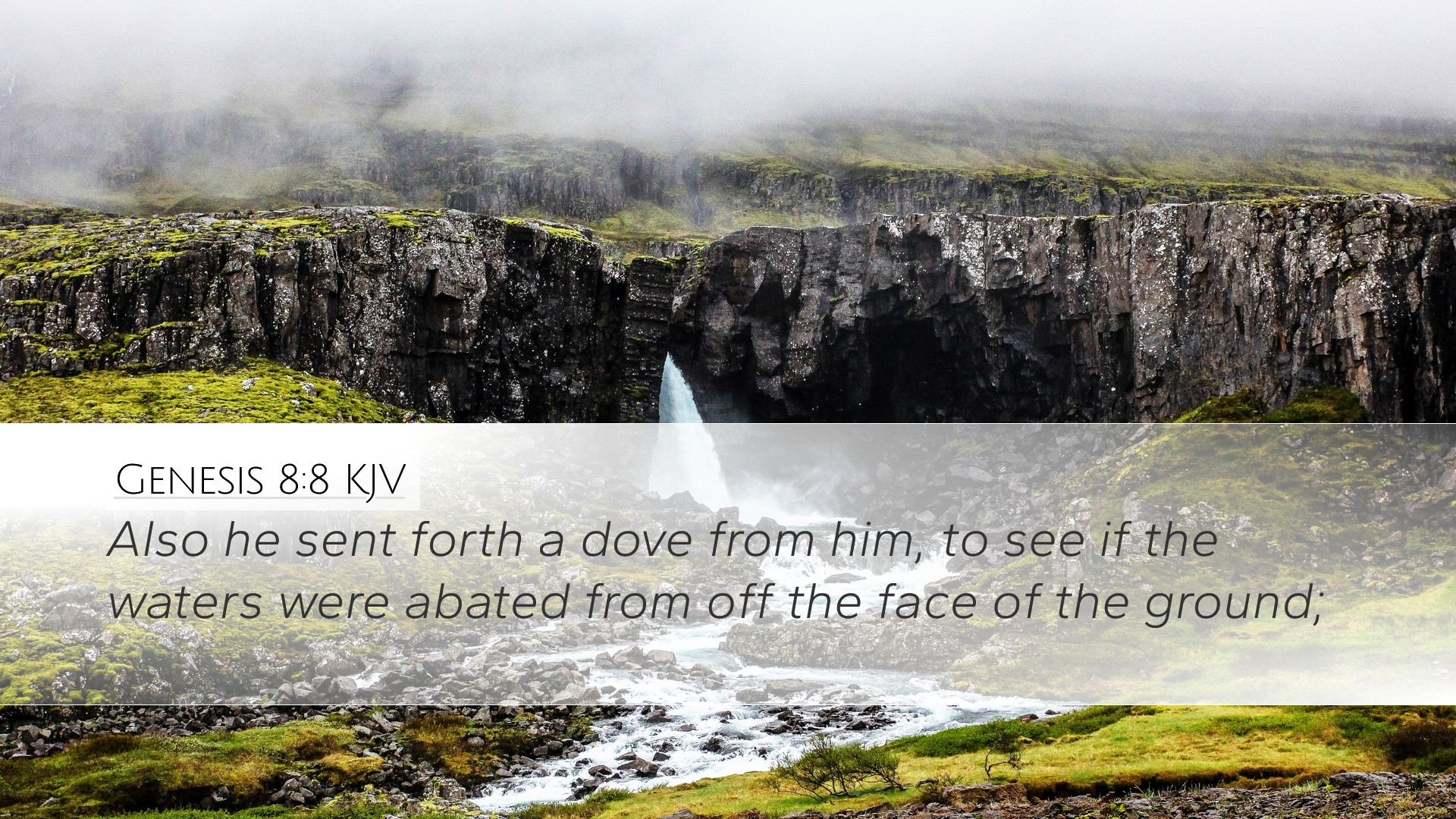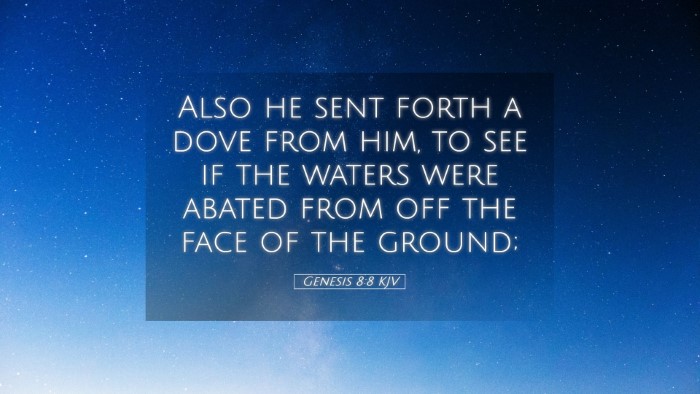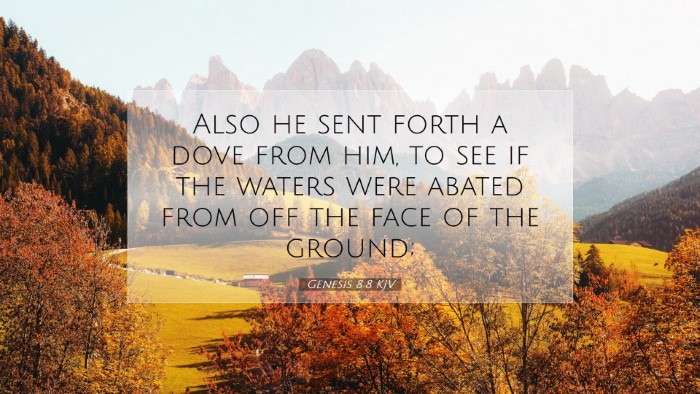Commentary on Genesis 8:8
Verse: "Also he sent forth a dove from him, to see if the waters were abated from off the face of the ground." (Genesis 8:8, KJV)
Introduction
In Genesis 8, we encounter the aftermath of the great flood, where Noah, having been divinely instructed to build an ark, now learns about the state of the earth post-diluvium. The sending forth of the dove is rich in theological implications and practical lessons, making this verse significant for pastors, students, theologians, and scholars alike.
Contextual Analysis
The narrative of Genesis 8 continues from the climactic events of the flood described in earlier chapters. After the rains ceased, and the ark rested upon the mountains of Ararat, Noah becomes anxious to know the condition of the dry land. The sending forth of the dove illustrates both Noah's cautious optimism and his reliance on God.
The Symbolism of the Dove
The dove is typically a symbol of peace and hope within the biblical narrative. John Gill notes that the dove’s nature—gentle and mild—reflects a longing for restoration in a world that had been severely judged by God. This detail is particularly profound as it foreshadows the eventual return of life and the restoration of harmony on earth.
Noah's Actions
Matthew Henry emphasizes that Noah's decision to send out the dove was marked with prudence and faith. He did not act impulsively; instead, he waited for God's timing and direction, exemplifying a model of patient expectation. As pastoral leaders, this teaches us the value of waiting on God and seeking discernment before action.
Theological Insights
The act of sending forth the dove can be viewed as an exercise in faith amid uncertainty. As Albert Barnes points out, Noah's actions demonstrate an essential aspect of life—seeking signs of hope and renewal in a world often characterized by loss and despair.
Hope After Judgment
The flood represents divine judgment and the cleansing of wickedness, but the sending of the dove signifies the beginning of a new creation and hope. Adam Clarke connects this idea to the broader theme of redemption; just as Noah sought a sign of life, believers today look for signs of spiritual renewal amid the residual effects of sin and judgment.
Lessons for Life and Ministry
- Patience in Discernment: Just as Noah waited for the dove to return with evidence of land, we, too, must practice patience as we await God’s revelations in our lives and ministries.
- Testing the Waters: In ministry, it is often essential to 'test the waters' before making decisions. Noah's careful approach allows leaders to model discernment and stewardship in their congregations.
- Looking for Signs of Renewal: The dove brought back an olive leaf, which symbolizes peace and the promise of new beginnings. This teaches that while we may face significant challenges, God provides evidence of hope even amidst trials.
Conclusion
Genesis 8:8 serves as a powerful reminder of the interplay between divine judgment and grace. In the figure of the dove, we find profound theological meaning that transcends the narrative context, speaking to the human condition. Through the lens of commentators like Matthew Henry, Albert Barnes, and Adam Clarke, we are invited to reflect on our own experiences as we seek both God’s guidance and the hope of renewal in a broken world.


